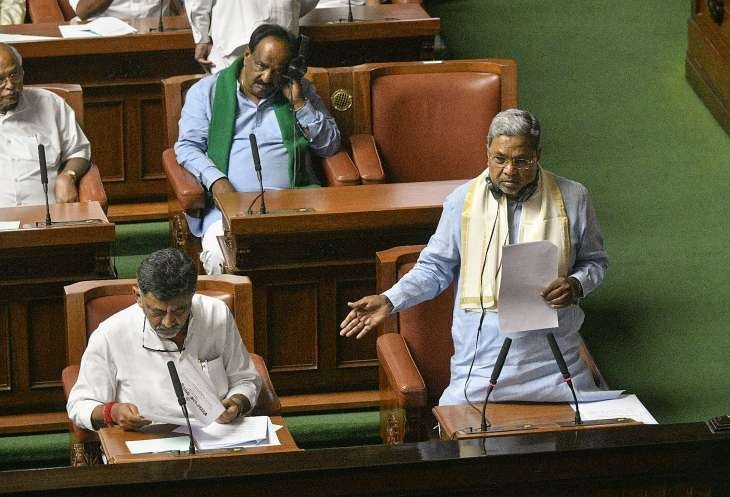Despite a Cabinet decision on June 15 to repeal the controversial anti-conversion law passed during the previous BJP regime, the Congress government in Karnataka has decided against tabling a Bill for withdrawal of the law in the ongoing Budget Session of the state legislature.
“The Bill is not likely to be tabled in the current session,” an official attached to the office of Karnataka Chief Minister Siddaramaiah said, reported The Indian Express.
The Protection of Right to Freedom of Religion Bill, 2021, or the anti-conversion bill was passed by the BJP in September last year in the Karnataka legislative council, when the then opposition Congress had staged a walkout.
Also Read: Karnataka: Siddaramaiah Cabinet approves roll-back of controversial anti-conversion law
On June 15 this year, the state Cabinet had taken a decision to repeal the Karnataka Protection of Right to Freedom of Religion Act, 2022. State Law Minister H K Patil had said after the Cabinet meeting that a decision had been taken to repeal the Act in the July session of the legislature.
Sources in the law ministry said the state government has now decided to keep in abeyance all controversial laws passed by the previous BJP government, including the anti-conversion law and the ban on cattle slaughter, until the conclusion of the Lok Sabha polls next year in order to prevent the BJP from holding protests over the issue and gaining political mileage ahead of the elections, IE reported.
What is the anti-conversion law?
The anti-conversion law restricts religious conversion and regulates interfaith marriages. Commonly referred to as the Anti-Conversion Act, the law prohibits conversion from one religion to another by misrepresentation, force, fraud, allurement or marriage.
“No person shall convert or attempt to convert either directly or otherwise any other person from one religion to another by use of misrepresentation, force, undue influence, coercion, allurement or by any fraudulent means or by marriage, nor shall any person abet or conspire for conversions,” says the Act.
The anti-conversion Act is largely modelled on laws that are in existence in Uttar Pradesh, Gujarat, Madhya Pradesh and Himachal Pradesh.
A jail term of three years to five years and a fine of Rs 25,000 has been proposed for people from general categories violating the law. For people converting minors, women and persons from the SC and ST communities, the jail term is from three to 10 years, with a fine of Rs 50,000.

